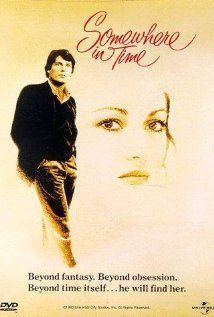I was trying to get some work on a TV show once and I can’t even remember what it could possibly have been, but I do recall the producer. She said to me that the single most important thing in television drama is the setting. Now, I’m sitting there in her office thinking bollocks, character is immeasurably more important but, you know, I wanted the work, so I’m nodding away saying how interesting that thought is.
I know I didn’t get the work. And I know I still believe right down to every individual pixel of my soul that character comes top, but she had a point. She had more of a point than I appreciated at that time and I’ve been thinking about it a lot. Especially so since this week I worked with a group specifically discussing how novels benefit from where they are set.
I think I’m probably going to find a way here to conclude that a story’s setting is a kind of character itself. Just one that doesn’t talk much. Or usually, anyway: there is a famous BBC Radio 4 dramatisation of Wuthering Heights that is narrated by the house. I long to hear that.
But let’s see if we get to this setting-is-character lark and whether it works or is just my hoping to convince that producer she should’ve hired me.
Her point, if I’m understanding her correctly, is that the setting enables drama. So Albert Square in EastEnders, for instance, is naturally home to a fairly diverse group of characters. Different ages, wealth, backgrounds, jobs. Differences are what make the world interesting but they are also what makes for sparky drama: our situations put pressures on us that affect how we see things and what we do about them. Everything we’ve been taught and everything we’ve done affects who we are. So when you can find a setting that naturally puts different people together, it is potent.
My mind has just leapt from EastEnders to Star Trek: Deep Space Nine and specifically why it was set up to be different to the other Trek shows. Ridiculously, Star Trek got to the point where everyone on the Enterprise was lovely and they all supported each other perfectly. No difference of opinion beyond which technobabble solution would save which entire civilisation this week. It was a conscious choice: Starfleet officers are heroes. So for Deep Space Nine, the producers had the show’s Federation be brought in to help recovery in a region rather battered by conflict.
The baddies with the noses, the Cardassians, had used local Bajoran people as slaves in their mining space station. Now they were gone and Starfleet took over the station like a UN envoy. So very consciously and actually very cleverly, this space station setting was potent. You had the heroes coming in, you had the surviving Bajorans wondering whether they were swapping one group’s slavery for another, and you had the Cardassians hovering around wanting to come back. Rather than a single group of nicey-nicey people, you had at least three distinct groups inescapably in conflict.
It was well done and it means that to me, Deep Space Nine, is the only satisfying Star Trek out of an awful lot of different versions. I could argue that this is down to the writing: I read all 170-odd scripts for this show, most of them before I’d seen the episodes, and they read like a novel, they were so interesting. Somehow I also read all 170-odd scripts for Star Trek: The Next Generation and they weren’t so good.
But then Deep Space Nine didn’t move so the problems faced this week continue next time. The Enterprise just pops off to save the day somewhere else.
So certainly the writing elevates DS9 but maybe it could because of the setting the writers created.
That’s not the same as the setting being a character, I’m struggling there. I’m not sure why I think I’m going to reach that point or why I’m focusing on it, yet I can already see that I’m regarding the place as important to the characters. If I want to tell a story about a school, the characters I have in there will inevitably be different if that school is Eton or if it’s in an inner city slum area.
Perhaps because I’m a scriptwriter, I have seen that I’ve avoided being specific about settings: this script is set in a city, that one in a village, and I’ve not bothered to say London or Little Writings on the Wry. Maybe I should have been specific. Certainly I’m going to be. For it occurs to me that the setting affects characters vastly more than I realised: if a place is comfortable, that tells me a lot about the people who stay. If it’s a foul place then it tells me a lot about the characters who go there.
Character and setting are intertwined. I want to go just a touch further and argue that settings have moods: an underground car park has a different disposition to a hayfield in the year 19summertime.
So settings have moods and feelings plus they are deeply entwined with characters. Go on, give it to me: your setting is a character. And excuse me while I go phone a producer.

